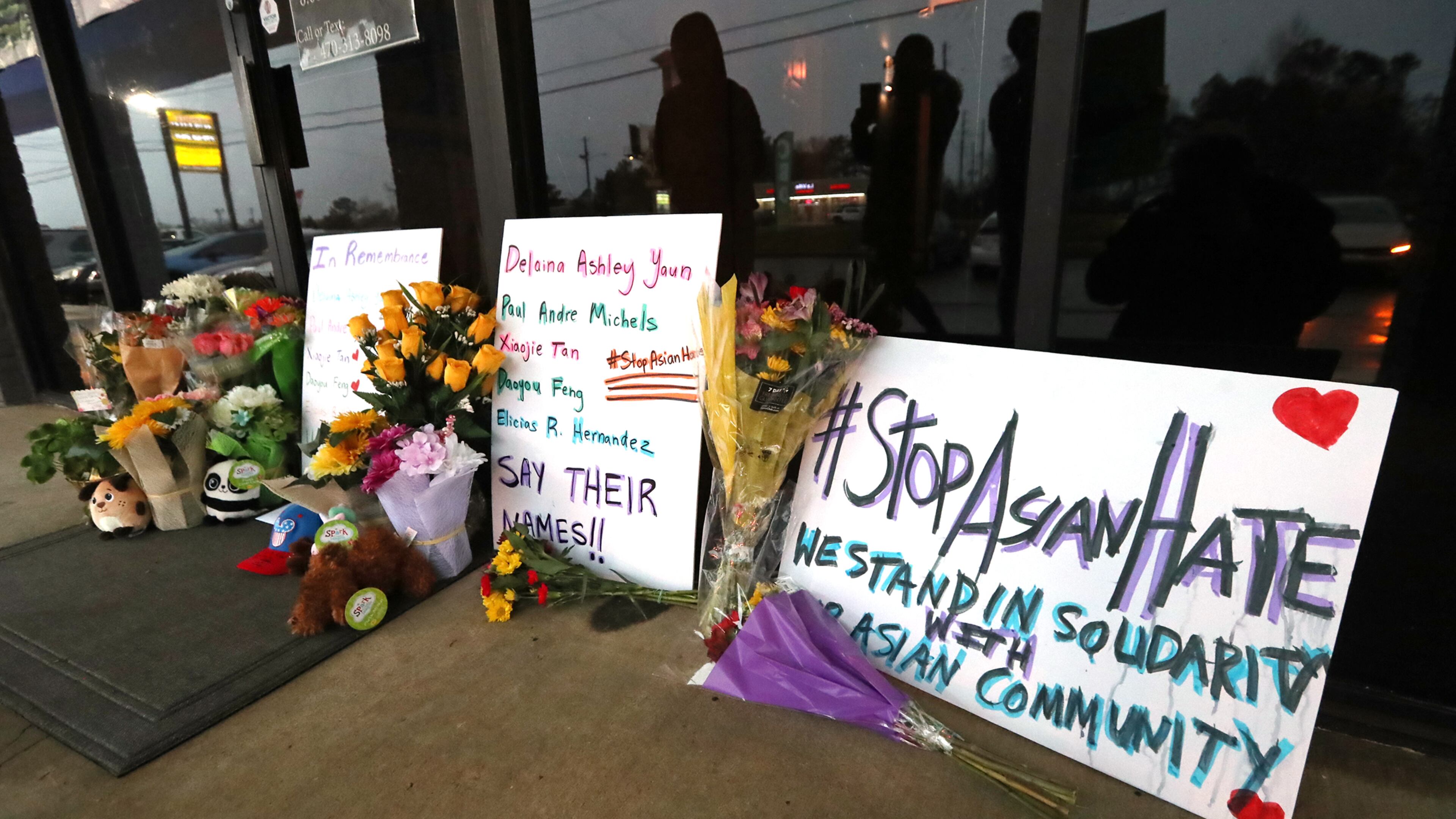OPINION: Is it time for all families to have ‘the talk’?

For generations, “the talk” has been a rite of passage for most Black Americans — a conversation between Black parents or caregivers and their children about the dangers children may face during encounters with law enforcement or other authority figures.
This is something Black families have accepted as part of their role in raising Black children. It can be emotional. It feels exhausting. But it is necessary, even though it provides no guarantee that your child will survive a routine traffic stop or any encounter that brings him or her in contact with the police.
Because this is my lived experience, it took time for me to understand “the talk” is not exclusive to Black people. Many families of color are having some version of “the talk,” and while it may not sound or look the same from one community to the next, the objective is always survival.
Long before the March shooting rampage in metro Atlanta in which a white man is charged with killing eight people including six women of Asian descent, Christine Lim Weber, 44, of Decatur felt a palpable anger. “People were saying, I can’t believe this is happening. I was like, no, this has been happening for a long time, centuries,” she said.
The daughter of South Korean immigrants, Weber moved to Snellville from the Bahamas when she was in high school, and her family had some unsettling interactions.
Weber recalled one afternoon when members of the Ku Klux Klan came to the door of their rental home and handed flyers to her mother. Her mother, unfamiliar with the group, invited them in for tea. Weber and her sister overheard the individuals identify themselves as members of the organization and ran over to intervene.
More recently, in the early days of the pandemic, Weber had her own racist encounter. As she shopped at Walmart, someone spat in her direction and told her to go home. “My blood was boiling but what could I do? I was alone and afraid,” Weber said. “I realized, despite the many times I had seen how poorly they had been treated, my parents never talked about this, not once. We never really had a conversation and I realize now how important it is to have those conversations with my kids,” she said.
Weber and her husband, who are Jewish, had already begun discussing racism with their children, ages 8 and 10, when antisemitic incidents tracked by the Jewish community were on the rise in 2017, she said. The conversations continued through the summer during the Black Lives Matter protests. But with the March 16 spa shootings, the content of the conversation changed.
“The conversation turned to teaching them how to exit a situation without being harmed. It is a balance of teaching your kids to be proud of who they are and teaching them to be cautious and aware of their surroundings,” Weber said. She had similar conversations about safety with her mother, who lives in an independent living community.
Many Black Americans can detail the measures they take to appear non-threatening. Members of Asian immigrant communities also have finely honed survival strategies, said Mila Konomos, 45, of Decatur.
No eye contact. Keep walking. Get home as soon as you can. Basically, try to make yourself invisible.
But Konomos, who was born in South Korea and adopted by a white family, could never seem to hide.
About five years ago, when two white boys chased her son around a park in Dunwoody poking him with sticks and calling him the “Chinese dude,” Konomos knew she would ultimately have to have a talk with her son, who was about 5-years-old at the time and that conversation would have to address not only how to deal with kids on the playground, but how to manage encounters with adults and authority figures.
After the spa shootings, she opened the conversation by sharing the country’s history of anti-Asian discrimination, including the Chinese Exclusion and the internment of Japanese Americans during World War II. “The way I framed it is we are going through another period like that,” Konomos said.
Dr. Clarence Massie Jr. of APS Counseling in Atlanta, which focuses on a range of issues including substance abuse, parenting and men’s issues, described it as a rebirth of racism against the Asian Americans and Pacific Islanders community. “I wonder, is this what it takes ... to heal this country in a way that makes sense,” he said.
In early April, in response to ongoing incidents of police brutality, racism and the mass shootings, I received a letter from my daughter’s school encouraging families to have “Courageous Conversations” with our children.
“Respectfully, many families of color don’t have an option to have these conversations, and it should no longer be optional for any families,” wrote the school’s Director of Culture and Equity.
Massie said those talks should not only be directed toward children. “We need to have conversations with our entire community ... our elders, our peers and our colleagues,” Massie said. “In our white households, I would like to see more conversations around humanity. How does humanity dictate the moral compass?”
For people of color, “the talk” can no longer be a conversation that expires as if children age out of danger. It must grow deeper as the history of violence, brutality and racism in our country grows longer. For families new to this tradition — those for whom “the talk” is not an act of survival but a desire and decision to engage — welcome to the conversation.
Read more on the Real Life blog (www.ajc.com/opinion/real-life-blog/) and find Nedra on Facebook (www.facebook.com/AJCRealLifeColumn) and Twitter (@nrhoneajc) or email her at nedra.rhone@ajc.com


